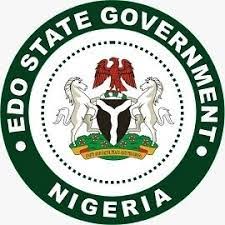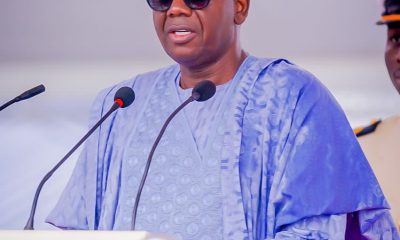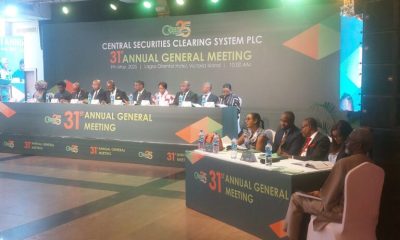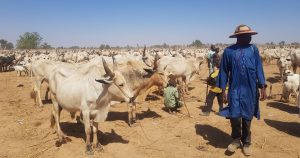COVER
Ayu Emerges DAILY ASSET MAN of the Year

The Management of Asset Newspapers Limited (Publishers of DAILY ASSET) has announced former Senate President and the National Chairman, Peoples Democratic Party(PDP), Dr Iyorchia Ayu as winner of the paper’s annual coveted award, ‘DAILY ASSET Man of the Year 2021’.
Also announced winner is another former Senate President, Dr Bukola Saraki, who clinched the ‘DAILY ASSET Distinction Leadership Award 2021’
Publisher/Editor-in-Chief of the Abuja-based daily newspaper, Dr Cletus Akwaya in a statement yesterday said the Editorial Board of the Newspaper also voted the Governors of Adamawa and Ogun States, Rt.
Hon Ahmadu Fintiri and Chief Dapo Abiodun as joint winners of the ‘Governor of the Year’ category, while the Governor of Plateau state and Chairman, Northern Governors Forum, Rt. Hon. Simon Bako Lalong emerged ‘Political Leader of the Year’ awardee.Other personalities nominated for the awards in various categories include:Elder Paul Bassey, General Manager, Akwa FC, Uyo, Sportsman of the Year; Amb. Brigadier Gen Mohammed Buba Marwa(rtd), Chairman, National Drug Law Enforcement Agency(NDLEA), Public Servant of the Year; Dr Jamil Isyaku Gwamna, Managing Director/CEO, Kano Electricity Distribution Company(KEDCO), CEO of the Year; Dr Bayero Salih Farah, Director General/CEO Nigeria Institute of Transport Technology(NITT) Zaria, CEO of the Year; Dr Bashir Jamoh– Director General/CEO Nigerian Maritime Administration and Safety Agency(NIMASA), CEO of the Year.
According to the statement, the Editorial Board equally voted to nominate Prof Akpofure Rim-Ukeh, Vice Chancellor, Federal University of Petroleum Resources Effurum and Prof Lawal Bilibis, Vice Chancellor, Usman Danfodio University, Sokoto as joint winners of Vice Chancellor of the Year, while a Kano-based business conglomerate, UYK Nigeria Limited, which has Alhaji Yahaya Usman Kansila as Chairman/CEO emerged ‘Fastest Growing Company of the Year’
“The nominations were not influenced by anybody as the Editorial Board arrived at the decisions after a rigourous evaluation of the performance of the various winners in the respective categories,” the statement said.
The Annual Awards, which started in 2017 have held every year since then and usually attracts political leaders, captains of industry, traditional rulers, Diplomats and professionals.
“We have maintained the tradition for five years in keeping with our resolve to celebrate personalities and corporate organisations that excelled in their activities to serve as Role Models to the younger generation of Nigerians.
Nigeria has witnessed too many sad incidents arising from the state of insecurity in the country, so we wish to give Nigerians one moment of celebration, the Publisher, a former Commissioner of Information in Benue State was quoted to have said in the statement.
According to the publisher, the awards will be presented to the various winners at a grand ceremony in Abuja, the nation’s capital early next year, adding details of participation were already being conveyed to special invited guests and the award recipients.
COVER
Nigeria’s Capital Market Key to Achieving $1trn Economy – FG
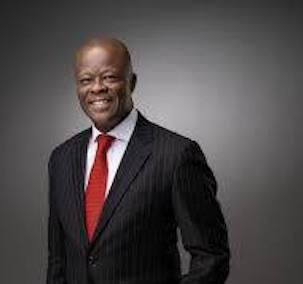
By Tony Obiechina, Abuja
Minister of Finance and Coordinating Minister of the Economy Wale Edun has emphasized the crucial role of the capital market in achieving the nation’s ambitious goal of becoming a $1 trillion economy.Edun, who spoke at the Capital Market Committee (CMC) meeting, was represented by Minister of State for Finance; Dr.
Doris Uzoka-Anite highlighted the market’s transformation since 2015, with improvements in governance structures, new products and platforms, stronger regulatory environment, and growing investor participation. According to the Minister, the Implementation of the Capital Market Master Plan (2015-2025), has been instrumental in increasing the market’s contribution to the national economy, developing a sophisticated market structure, and improving competitiveness.Edun said the revised plan prioritizes digitalization, innovation, sustainability, inclusion, and capital formation, aligning with the broader economic reform agenda.He said the passage of the new act modernizes the legal and regulatory framework, streamlines enforcement mechanisms, and provides clarity on emerging areas such as digital assets and crowdfunding.On the challenges and opportunities inherent in the Act, the Minister said, it will help deepen market participation, as well as ensure regulatory coordination remains tight.On the government’s private sector innovation in creating the needed environment for businesses to thrive, the Minister noted that the government is committed to creating an enabling environment for private sector innovation to flourish within a fair and transparent environment.The Minister added that the market is expected to contribute to the economy, serving not only for capital raising but also as a vehicle for wealth creation, economic inclusion, and long-term national resilience.He explained that, with the Securities and Exchange Commission undertaking regulatory reforms, including joining the GBMC Network of IOSCO in promoting and implementing ISSB Standards amongst others, the domestic economy has recorded the fastest GDP growth in about a decade in 2024, driven by a strong fourth quarter and improved fiscal position.Earlier in his speech, the DG SEC, Dr. Emomotimi Agama, emphasized the Commission’s commitment to regulatory reforms and capital market growth.According to him the enactment of the Investment and Securities Act (ISA) 2025 marks the beginning of a transformative new era for the capital market.Agama highlighted the Commission’s efforts to deepen engagement with stakeholders, ensure widespread dissemination and understanding of the new law, and drive innovation and compliance.He also emphasized the importance of restoring investor confidence, bringing timely relief to aggrieved investors, and creating a platform for broad-based participation of Nigerians in wealth creation.The SEC boss noted that the Commission has constituted an implementation team to thoroughly engage with every provision of the ISA 2025 and set up a dedicated sensitization team to deepen public understanding of the new law. A podcast series has also been launched to simplify the ISA 2025 and make it accessible to all Nigerians.Agama highlighted the Nigerian capital market’s impressive performance in 2024, with the NGX All-Share Index increasing by 37.65% and market capitalization growing by 53.39%. He also noted the Commission’s efforts to enhance regulatory efficiency, promote market integrity, and protect investors.The SEC boss emphasized the importance of financial inclusion and investor education, citing the Commission’s initiatives to empower women, youth, and grassroots communities. He also highlighted the Commission’s commitment to technology-driven solutions, including the launch of an e-survey to assess emerging technology adoption in the Nigerian capital market.Agama concluded by emphasizing the Commission’s commitment to fostering growth, transparency, and sustainability in the capital market, and looking forward to fruitful deliberations at the meeting.The highlight of the CMC meeting was the unveiling of the ISA Act 2025 by the minister.COVER
FG Boosts Internet Access, Rolls out $2bn Fibre Network
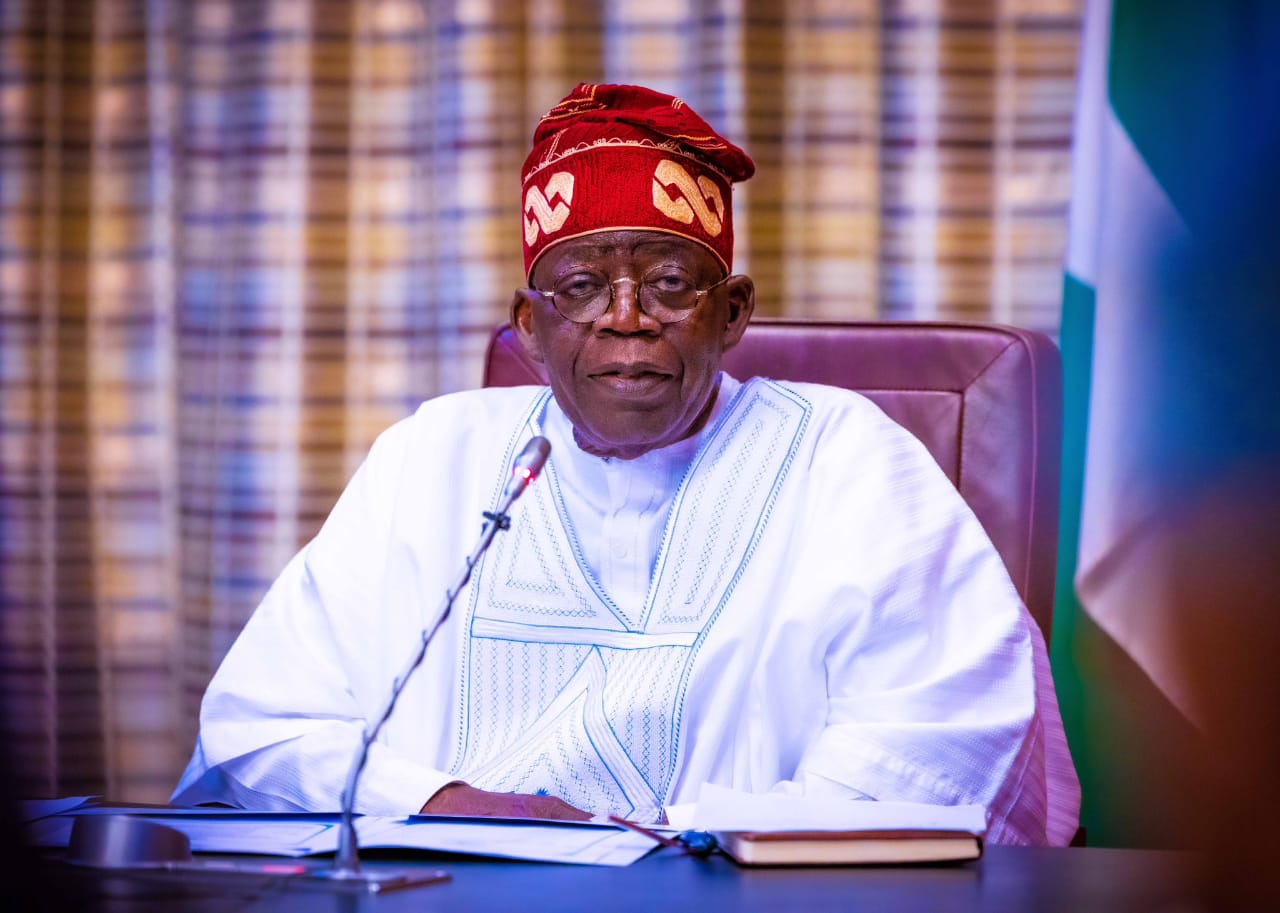
By David Torough, Abuja
The Presidency on Monday said Nigeria’s Communications and Digital Economy sector attracted $191m in foreign direct investment in Q1 2024, a nine fold increase from $22m in Q1 2023.The Minister of Communications, Innovation and Digital Economy, Bosun Tijani disclosed this during an interview for an upcoming State House documentary marking President Tinubu’s second anniversary.
Special Adviser on Information and Strategy to the President, Bayo Onanuga, revealed in a statement yesterday titled; “Investment in Digital Economy Grows Ninefold, Rollout Of $2 Bn Fibre Optic Infrastructure Begins Q4: Bosun Tijani. ”Tijani highlighted the sector’s robust workforce development, driven by the three Million Technical Talent programme and revealed plans for a $2bn initiative to deploy 90,000 kilometres of fibre optic infrastructure nationwide, starting in Q4 2025.“These foundational reforms, coupled with advancements in artificial intelligence and the startup ecosystem, have positioned Nigeria as a global leader in the digital economy,” Tijani stated.Comparing FDI inflows, he said, “In Q1 2023, the sector had about $22m; by Q1 2024, with this administration well underway, we reached $191m. The trend continued in Q2, increasing from $25m in 2023 to $114 m in 2024.”According to the minister, the 3MTT programme, launched in October 2023 to create a tech-savvy workforce, has already trained over 117,000 Nigerians in digital skills, surpassing its initial target of 30,000.“By last year, we had already moved that to over 117,000. With an additional 35,000 in training, the programme is nearing 10% of its 3 m goal. And in the rest of the time in office, we hope to reach three million,” he said.Regarding connectivity, Tijani announced that Project Bridge, focused on deploying 90,000 kilometres of fibre optic cable, will commence in the fourth quarter.“We are preparing a $2bn investment to ensure every Nigerian can access affordable, high-quality connectivity regardless of location. Increasing connectivity hubs by just 10 per cent could yield a 2.5 per cent GDP growth,” he said.Tijani celebrated Nigeria’s ranking among the world’s top 60 countries for AI readiness and developing a homegrown large language model.He also highlighted the launch of the AI Collective platform, supported by leading partners including Pierre Omidyar, Google, and Microsoft, to foster collaboration and innovation in artificial intelligence.For the first time in the country, the ministry has funded 55 academic researchers to explore technology applications in agriculture, healthcare, and education. In addition, N300m was invested in 10 startups using AI and blockchain to enhance agricultural productivity.On the Nigeria Startup House in San Francisco, an initiative targeting $5 billion in startup funding, Tijani said, “Our goal is to attract $5 billion in investments for Nigerian startups, supported by the Startup Pact and Trade Desk initiatives, which will connect local tech firms to global opportunities and government procurement.”Tijani revealed that over 500 government technologists have been trained in AI and Digital Public Infrastructure, and the groundbreaking Digital Economy Bill has passed its first reading in the National Assembly.To bridge rural connectivity gaps, the Minister projected that 7,000 telecom towers would be deployed, targeting 98 per cent nationwide coverage, adding that the Federal Executive Council had already approved the project.He described the progress on Right-of-Way issues as a game-changer for the country, revealing that 12 states in the federation have adopted zero-rated Right-of-Way policies.According to him, these efforts will support the National Broadband Plan’s goal of achieving 90% penetration by 2025, up from 48% in 2024.He projected the sector’s GDP contribution to rise from 16 per cent to 22 per cent, stating, “If a sector can increase its contribution by three to four per cent to the GDP, we’re about to see the economic growth we’ve not seen before. Technology allows us to bridge the gap between governments and the people.”Tijani said the government is not chasing quick wins. “The results we want to provide for Nigeria are long-lasting reforms that will transform our economy for generations to come”.COVER
Abbas Recommends Israel, Brazil, Vietnam Revenue Diversification Models

By David Torough, Abuja
Speaker of the House of Representatives, Hon. Abass Tajudeen, has declared that Nigeria’s heavy dependence on oil revenue would continue to leave its economy vulnerable, noting that agriculture remained the most viable alternative to achieving resilience.
Abass made the declaration in Abuja on Monday at a one day public hearing on some Bills seeking the establishment of agricultural colleges and institutions. Represented by Chief Whip of the House, Hon. Ibrahim Isiaka, the Speaker said it was within this context that the establishment and expansion of Agricultural Research Institutions across the country are not only necessary but strategically urgent.He said Nigeria should “Emulate countries like Israel, Brazil, and Vietnam that have attained a significant leap in agro development by investing substantially in research and development.”According to him, Brazil’s Embrapa, for instance, reengineered an infertile savannah into a global food hub, just as Vietnam’s targeted agricultural reforms pulled vast populations out of poverty, while Israel continues to innovate in arid-zone agriculture through technology-driven methods.Chairman of the House Committee on Agricultural and Institutions, Hon. Isiaq Abiodun Akinlade, recalled how in the 60s and 70s, the country was among the major exporters of agricultural produce such as cocoa, cotton, palm oil, and groundnuts.The lawmaker noted that Nigeria, with a population size of over 220 million and still growing, is desirous of more agricultural colleges and research institutions to help proffer solutions to issues, “namely climate change, insecurity, pest outbreaks, soil degradation, unskilled labourers, and livestock management.”
